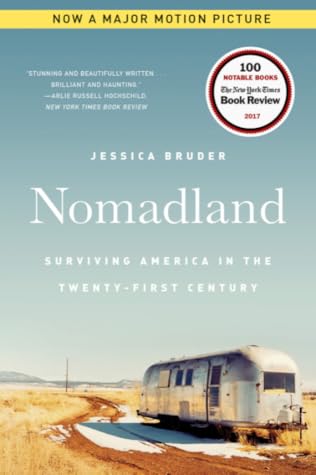More on this book
Community
Kindle Notes & Highlights
Read between
September 6 - September 23, 2021
As I write this, there are only a dozen counties and one metro area in America where a full-time minimum wage worker can afford a one-bedroom apartment at fair market rent. You’d have to make at least $16.35 an hour—more than twice the federal minimum wage—to rent such an apartment without spending more than the recommended 30 percent of income on housing.
According to 2015 census figures, among older women living alone, more than one in six are below the poverty line. Nearly twice as many elderly women in America are poor (2.71 million) than their male counterparts (1.49 million).
“At one time there was a social contract that if you played by the rules (went to school, got a job, and worked hard) everything would be fine,” he told readers. “That’s no longer true today. You can do everything right, just the way society wants you to do it, and still end up broke, alone, and homeless.” By moving into vans and other vehicles, he suggested, people could become conscientious objectors to the system that had failed them. They could be reborn into lives of freedom and adventure.
As the nomads met over campfires in forests and deserts around the country, they began to form the kind of improvised clans that the novelist Armistead Maupin called “logical”—rather than “biological”—family.
Much of what I found made workamping sound like a sunny lifestyle, or even a quirky hobby, rather than a survival strategy in an era when Americans were getting priced out of traditional housing and struggling to make a living wage.
Other stories were less chirpy, but still they emphasized the thrill and camaraderie of the open road, sidestepping the challenges that had driven so many people to radically reimagine their lives.
Positive thinking, after all, is an all-American coping mechanism, practically a national pastime. Author James Rorty noted this during the Great Depression, when he traveled America talking with people forced to seek work on the road. In his 1936 book, Where Life Is Better, he was dismayed that so many of his interview subjects seemed so unshakably cheerful. “I encountered nothing in 15,000 miles of travel that disgusted and appalled me so much as this American addiction to make-believe,” he wrote.
The truth as I see it is that people can both struggle and remain upbeat simultaneously, through even the most soul-testing of challenges. This doesn’t mean they’re in denial. Rather, it testifies to the remarkable ability of humankind to adapt, to seek meaning and kinship when confronted with adversity.
In America, if you don’t have an address, you’re not a real person.
(It’s sad—but not surprising—that teeth have become a status symbol in a country where more than one in three citizens lack dental coverage, which isn’t included with standard medical insurance.)
Is this the evolution of the former middle class? Are we seeing the emergence of a modern hunter-gatherer class?”
The term “homeless” has metastasized beyond its literal definition, becoming a terrible threat. It whispers: Exiles. The Fallen. The Other. Those Who Have Nothing Left. “Our society’s untouchables,” LaVonne suggested on her blog.
Maybe not so low. After all, millions of Americans are wrestling with the impossibility of a traditional middle-class existence. In homes across the country, kitchen tables are strewn with unpaid bills. Lights burn late into the night. The same calculations get performed again and again, over and over, through exhaustion and sometimes tears. Wages minus grocery receipts. Minus medical bills. Minus credit card debt. Minus utility fees. Minus student loan and car payments. Minus the biggest expense of all: rent.
In the widening gap between credits and debits hangs a question: What parts of this life are you willing to give up, so you can keep on living? Most who face this dilemma will not end up dwelling in vehicles. Those who do are analogous to what biologists call an “indicator species”—sensitive organisms with the capacity to signal much larger shifts in an ecosystem. Like the nomads, millions of Americans are being forced to change their lives, even if the transformations are less outwardly radical. There are many ways to parse the challenge of survival. This month, will you skip meals? Go to the
...more
It’s already happening. The cause of the unmanageable household math that’s keeping people up at night is no secret. The top 1 percent now makes eighty-one times what those in the bottom half do, when you compare average earnings. For American adults on the lower half of the incom...
This highlight has been truncated due to consecutive passage length restrictions.
am, somehow, less interested in the weight and convolutions of Einstein’s brain than in the near certainty that people of equal talent have lived and died in cotton fields and sweatshops,” reflected the late writer Stephen Jay Gould. A deepening class divide makes social mobility all but impossible. The result is a de facto caste system. This is not only morally wrong but also tremendously wasteful. Denying access to opportunity for large segments of the population means throwing away vast reserves of talent and brainpower. It’s also been shown to dampen economic growth.


